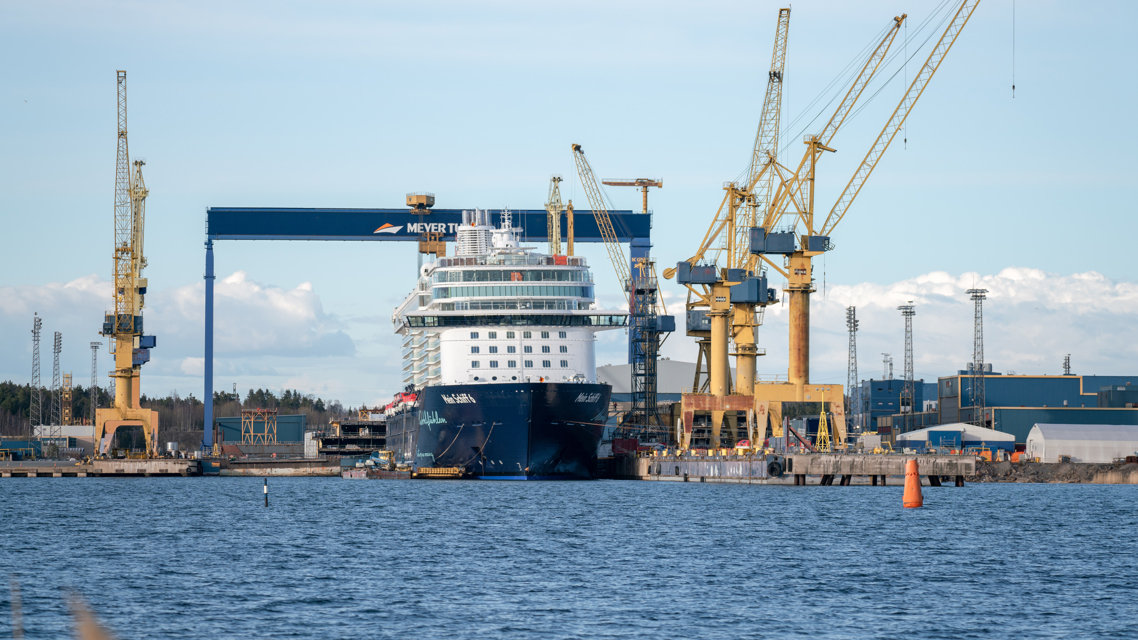We strongly believe that the maritime industries can have a green and prosperous future and that there is a real opportunity for Europe to be leading in this important field. European workers have a vital role to play in this respect.
Today, the European Commission, MEPs, employers and trade unions came together in a round table organized by the European Parliament’s SEARICA Intergroup (a grouping of MEPs addressing issues relevant for seas, rivers, islands and coastal areas) to discuss the impact of COVID-19 on the maritime industries and EU actions required to ensure a future for the sector.
COVID-19 has had a severe impact on European shipbuilding and maritime technology sectors, with decreases in both volume (62%) and value (77%) of new orders. The sector supports 500,000 direct jobs and 400,000 indirect jobs in the EU, with thousands more across wider Europe. These jobs have come under threat with redundancies announced (e.g. at Meyer Turku in Finland) and yard closures (e.g. MV Werften in Wismar, Germany).
The current crisis comes on top of existing problems for the industry marked by a persistent lack of a global level playing field, unfair competition and overcapacity. And Europe continues to be at a disadvantage as governments in South-East Asia are providing domestic shipbuilders with massive state support in response to the crisis, thus enabling the sector to recover quickly.
IndustriAll Europe emphasized in today’s round table the urgent need to keep highly skilled jobs in Europe to ensure Europe’s position as world leader in producing green technology and lowering transport emissions. In the medium and long term, the EU must take action to end overcapacity, create a level playing field, define and implement trade defence instruments (which currently do not cover ships), increase R&D funding for green technology and promote research synergies between the maritime technology sector and the offshore energy sectors.
Judith Kirton-Darling, Deputy General Secretary for industriAll Europe, said:
‘’We strongly believe that the maritime industries can have a green and prosperous future and that there is a real opportunity for Europe to be leading in this important field. European workers have a vital role to play in this respect. Our highly skilled European workforce has the capacity to produce world leading vessels and equipment which is high-tech, high value and can be the greenest on the market.”
‘’It is crucial that this important work continues, and today I called on the European Commission and the European Parliament to take action to support the sector and its workers during this challenging time.”
‘’Today’s European round table was a positive first step. We need European stakeholders to join forces now and define and implement European solutions to safeguard the industry and its jobs. There is no time to waste.’’
After the European round table, trade unions from across Europe came together to discuss a tailored European recovery plan for the sector. The plan will enable industriAll Europe and its affiliates to contribute to identifying solutions at both national and European level to safeguard the sector and its workers.
Judith Kirton-Darling added:
‘’There is strong European solidarity in the sector and trade unions are united. We will work together to support shipyards and suppliers, many of which are the lifelines for coastal communities. Creating more high-quality, greener jobs in Europe is a central ambition of industriAll Europe and its affiliates.’’
Contact: Andrea Husen-Bradley (press and communication), Elspeth Hathaway (policy adviser).

